If you live in Panama and you work in Panama, it’s easy to get a mortgage from a bank. Generally, we suggest going to your bank instead of a new bank as the diligence process is a lot easier. Banks, of course, are going to look at what they always look at; income, credit history, maybe some savings, what your liquidity is looking like, and of course what you’re purchasing.
If you fall into that category, you might only have to put down 10% to 15% or a maximum of 20% against the purchase price. You can buy something existing or something in construction. The bank rates these days, if it’s your primary residence are around 5% – 5.5% or maybe a bit better.
However, if you live outside of Panama or if you live inside of Panama and your income originates from outside of Panama, you might have to get a bit creative. Banks might finance you if you’ve got a history with the bank, such as a couple of years, if you’ve got a residency status, ie. you’re a permanent resident, or if you’ve been with your current employer for quite some time. However, there are some hoops that you’re going to have to jump through to get that financing. I’ll walk you through the traditional financing path and then I’m going to tell you about some other options that we’re starting to see from both developers and individual sellers.
Traditional Financing
Traditional financing in Panama for a foreigner who works abroad is an uphill battle. First of all, if you do get approved, you’re probably going to have to put down 40% of the purchase price. You’re also probably going to end up paying a slightly higher rate. This rate could be as high as 6.5% to 7%. On the other hand, your terms will be traditional in terms of the payback period. Here in Panama, it’s usually 20 years and you can speed that up a little bit if you’re in the position to do so. Banks offer products where you can also put down a deposit and they’ll lend against that, but where’s the leverage? So that’s what you’re looking like typically on financing with a bank.
Developer Financing
Now, what we’re seeing is that developers in Panama are starting to give financing, which is great because that is essentially a pathway to getting traditional financing. Through this, you can build your credit history which makes you more attractive to banks.
Developers are offering shorter loan payback periods. So usually the developer will only finance five years out and oftentimes you do not get possession of that property until you’ve paid off the entire loan. Generally, there is a large balloon at the end. However, developers are getting creative these days.
Seller financing is the new mortgage in Panama! Tune in to see how buyers are financing their real estate purchases these days.They’re offering lease-to-own where a percentage of what you pay in rent gets applied to the purchase price. Generally, you have to lock it up with a deposit, say around 5% of the purchase price, and then anywhere from 50% to 100% percent of the lease-to-own rent that you pay gets applied to the sales price. And then once the developer financing kicks you’re looking at 7% interest on that loan. That’s kind of competitive with the banks, certainly not cheap but it’s a bridge, right? It’s a bridge to getting into the financial system here and a way to be deemed more attractive for traditional loans.
Seller Financing
Sellers are also giving financing terms that are generally negotiated around current bank rates but usually a bit shorter. However, the seller might appreciate the bump up in the asking price because that’s usually what it entails and obviously charging interest on the unpaid remainder of the purchase price. Long story short, there are options ladies and gentlemen, fear not. Even though banks can be notoriously difficult to deal with.
What To Expect
A couple of things to expect if you want to go the traditional bank finance route don’t plan on getting it started before you come to Panama because banks and Panama for that matter are really slow on email responses. So that’s tricky to try and get your process started. When you come to Panama you need to meet your bank, perhaps open up a bank and even get their WhatsApp, right? That’s how you’re going to stay in touch. That said you come in, you can get set up. It can be done, however, it’s not easy.
Currently, the banks that are financing foreigners, I can count them on one hand. You’ve got ScotiaBank, Banistmo, Multi-Bank (kind of), and Capital Bank (perhaps). And when I say foreigners, if you’re a Panamanian and you live abroad and you’re making your money abroad you will be classified as a foreigner. They’re concerned about where your money is coming from most notably, is it a steady income? Long story short, just be prepared for headaches, be prepared for a long slog. And that is why non-traditional financing such as developer financing, lease-to-own and private seller financing is the new way to mortgage in Panama.
So anyway guys, thanks for tuning. We love comments, we love feedback and we are always curious to know where you’re watching from. And don’t forget, if you need any more information get in touch with us at Panamaequity.com.


Chris Frochaux
on said
Good info, as usual. Thanks Kent.
Kent Davis
on said
Thank you sir!
Ricardo Campos
on said
Thanks for the information. Kent. Coming from the USA, I have been introducing builder and seller financing to clients and it has been a slow process. Perhaps with todays situation it will become a normal way of financing.
Vanessa Hobson
on said
What about if you’re applying for a pension Visa? Does that help and receiving a bank loan, As far as making it easier because you have a steady income?
Kent Davis
on said
Yes ma’am, if you have a retirement income or annuity, that will help you qualify for both a pensionado visa and make it slightly easier to get financing. That said, depending on your age, the life insurance requirements may be onerous. We generally encourage 60+ year old buyers to pull out equity in their home country or apply for developer financing.
Cindy Francies
on said
Hello. How can I find developer financing? Where are those deals listed?
Kent Davis
on said
Hey Cindy, we can have someone from our office reach out no problem!
Cindy Francies
on said
Please do!
Byron Warner
on said
Can you talk about FECI and requiring life insurance? With 7% + FECI + Life Insurance fees, plus closing costs, seems like it’s better to pay cash.
Kent Davis
on said
Hey Byron, yes. FECI…ugh! It’s essentially a government mandated 1% rider on all second properties. That, added to the life insurance requirements usually wipe out investment returns other than appreciation and building equity.
Scott
on said
I just received Panamanian permanent residency in early August. Yep, I just beat the deadline, literally on the last day, thanks to your recommendation of Ricardo Faraudo. Now I want a property, but am less than pleased with these terms of financing. I am a US citizen and made over $100,000 last year, but been employed by the government for 16+ years now and have a pension coming in less than 4 years. My father passed in 2020 and left a sizeable estate and several properties and precious metals in a trust. I am the executor and the trustee of the estate and trust, but I am too used to the US terms for real estate. I can get a 30 year loan for 3 to 4% here and 10% to 20% down, depending if it’s personL residence or income property. I am not bitter about the different terms in different countries and I know Colombia, as another example, doesn’t finance at all (practically). What it comes down to is opportunity cost. For me to drop 40% at 5 to 7% interest over a 20 year loan certainly has an opportunity cost added to it, compared to what I could do in the states. I could buy 2 houses in the US for that amount that I would have got one in Panama. Your wealth would grow twice as fast in the US vs the investment in Panama. This doesnt mean that I don’t WANT a place in Panama to go with my permanent residency, but it becomes increasingly harder to justify it over the other better opportunities elsewhere. At this point, I’m considering just sitting on the precious metals for the next several years and then buy a property in Panama in cash later, when I sell those metals. Otherwise, I’m going to invest the money into a business and let the business earn the money for the property down the road. I guess I’m just spoiled with the terms here in the US and i don’t want to have a high opportunity cost. Thanks for the recommendation on Ricardo Faraudo for immigration though. He’s the best!
Kent Davis
on said
Hi Scott, thanks for your comments! In many ways, I agree with you: financing is cheaper in the US.
Market timing may be worth considering, as property prices are at all time highs in the US. Properties prices in Panama are still well below the high water mark we saw in 2009. Of course you can never really “bank” on appreciation.
Most of our buyers ultimately have plans to spend time in Panama, vs purchasing a pure investment property that they never plan on using. That also skews the numbers a bit, as it’s hard to put a price on escaping the winters or enjoying life in a different culture.
But yeah, interest rates are no doubt higher for financing a real estate purchase in Panama. And there are alot of hurdles to jump thru to secure that financing here.
DEBORAH CARSON
on said
Great information! Thank you so much. My husband follows your updates. They have been extremely valuable to our success in proper planning. Nothing, I mean, absolutely NOTHING, can be barrier for what’s to come for us in Panama! We are excited about being newly minted residents. Until we meet.
Good Vibes
Dr. Deb
Kent Davis
on said
Yes!